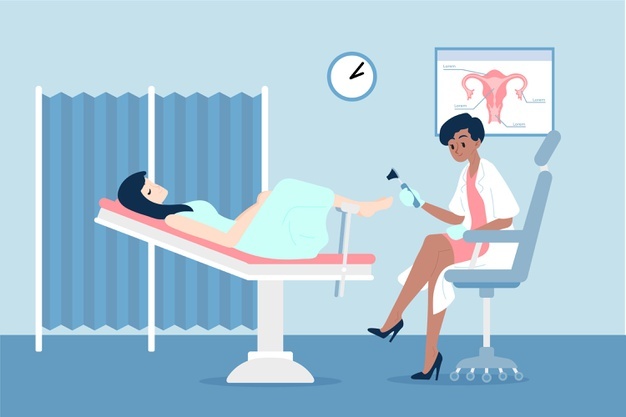Even though regular gynecological check-ups are essential for reproductive health, many women tend to skip them. As a result, they may start to experience some unpleasant symptoms and complications.
It is essential to understand that early diagnosis and treatment can help prevent the development of many gynecological conditions. That’s why it is essential to visit a gynecologist even if you have no severe symptoms. In this article, we have gathered six weighty reasons to visit a gynecologist.
1. Your periods are extremely painful
Pain during periods (dysmenorrhea) is a common condition that affects many women of reproductive age. However, some women can experience unbearable pain and cramping during periods that can’t be eliminated with the help of pain medications.
This condition is called secondary dysmenorrhea and should be evaluated by a doctor. The reality is that secondary dysmenorrhea is caused by a certain condition (endometriosis. adenomyosis, etc.) that affects the reproductive system. Visit a gynecologist to define the exact cause of your period pain and undergo accurate treatment.
2. You have heavy periods
If heavy blood flow during periods makes you change your tampon or pad every few hours, it can be a sign of a certain underlying medical condition. For example, adenomyosis is a condition that occurs when the inner lining of the uterus that is called the endometrium grows inside the uterine walls. This condition can make your periods heavy.
3. You have had an unprotected sex
f you don’t use condoms or other types of contraception, unprotected sex can lead to pregnancy. You should also know that the withdrawal method of contraception doesn’t provide protection from pregnancy.
But you shouldn’t think that unwanted pregnancy is the only result of unprotected sex. The reality is that you can get sexually transmitted diseases during sex if you don’t use male or female condoms. That’s why it is better to visit your gynecologist for a thorough examination after unprotected sex.
4. You have vaginal bleeding between periods
Light vaginal bleeding that occurs between periods is called spotting. It can occur during ovulation or because of hormonal birth control. However, there are certain conditions that can also lead to vaginal bleeding. The most common of them are:
- Uterine polyps
- Uterine fibroids
- STIs
- Pelvic inflammatory disease
- Endometriosis
- Polycystic ovary syndrome
- Thyroid disorders
- Cervical and uterine cancer
Due to the variety of factors that can cause spotting, it is better to visit your gynecologist to evaluate your condition.
5. You experience pain or discomfort during sex
It is essential to understand that pain or discomfort during sex can’t be deemed normal and may require immediate medical attention. The most common causes of pain and/or discomfort during sex include:
- Ovarian cysts
- Endometriosis
- Uterine fibroids
- Pelvic inflammatory disease
- Ectopic pregnancy
- Vaginal dryness
Women who have reached menopause often experience unpleasant sensations during sex because of a lack of natural lubrication and a damaged vaginal canal. Fortunately, modern medicine provides a variety of options that can help reduce age-related changes. For example, you can undergo vaginoplasty to restore your vaginal tissues.
6. You have abnormal vaginal discharge
Abnormal vaginal discharge usually occurs if your vagina becomes infected. For example, yeast infection causes thick discharge that is accompanied by redness, swelling, and severe itching. Due to the fact that other infections (like STIs. bacterial vaginosis, cervicitis) can also cause abnormal vaginal discharge, it is essential to visit a gynecologist and define the exact cause of your symptoms.
The bottom line
It is important to understand that symptoms usually don’t appear on their own. If you have noticed some changes in your menstrual cycle or other unpleasant symptoms, it is better to visit a gynecologist as soon as possible.
















